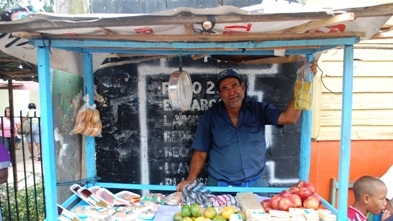Over the past three decades, the Government and international organizations have each published their own poverty figures, providing confusing conclusions on the incidence of poverty in Dominican Republic. Now the Caribbean nation will have unified poverty lines that respond both to country specific characteristics and international standards.
A local team, with the support of the World Bank, has developed a new poverty measurement methodology for the Dominican Republic. The main objective of the project is to create the capacity to conduct reliable and periodic reports analyzing poverty in the country. This will allow better targeting of public policies, and will ensure that no one in need is left aside.
For example, the new methodology suggests the incidence of moderate poverty in 2011 was around 41%, instead of the approximately 34% under the previous methodology. This does not represent an actual increase in poverty, but rather a more accurate estimation of the poor, according to national standards.
Next steps would be to understand the factors associated with poverty, to identify vulnerable groups, the magnitude of poverty, and short and long term evolution trends.
A partnership for development
The Bank’s technical and financial assistance brought together key actors in a Technical Oversight Committee, to encourage inter-institutional consensus and the promotion of transparency, following international best practices.
The committee was created to ensure quality standards and consensus. It was integrated by experts from nine organizations: World Bank, Economic Commission for Latin America and the Caribbean, the National Bureau of Statistics, the Dominican Ministries of Economy, Labor and Health, the Central Bank, the Social Cabinet and the United Nations Program for Development.
Other countries in the LAC region, such as Colombia, Mexico, Brazil and Peru, have also organized committees to study poverty in a precise manner, as well as to monitor its status and impact.
In the near future the project will continue to develop statistical production and technical capacity of the country, promoting the use of information and poverty analysis to guide public policies. Also, the information used to measure poverty will be accessible to the public.

